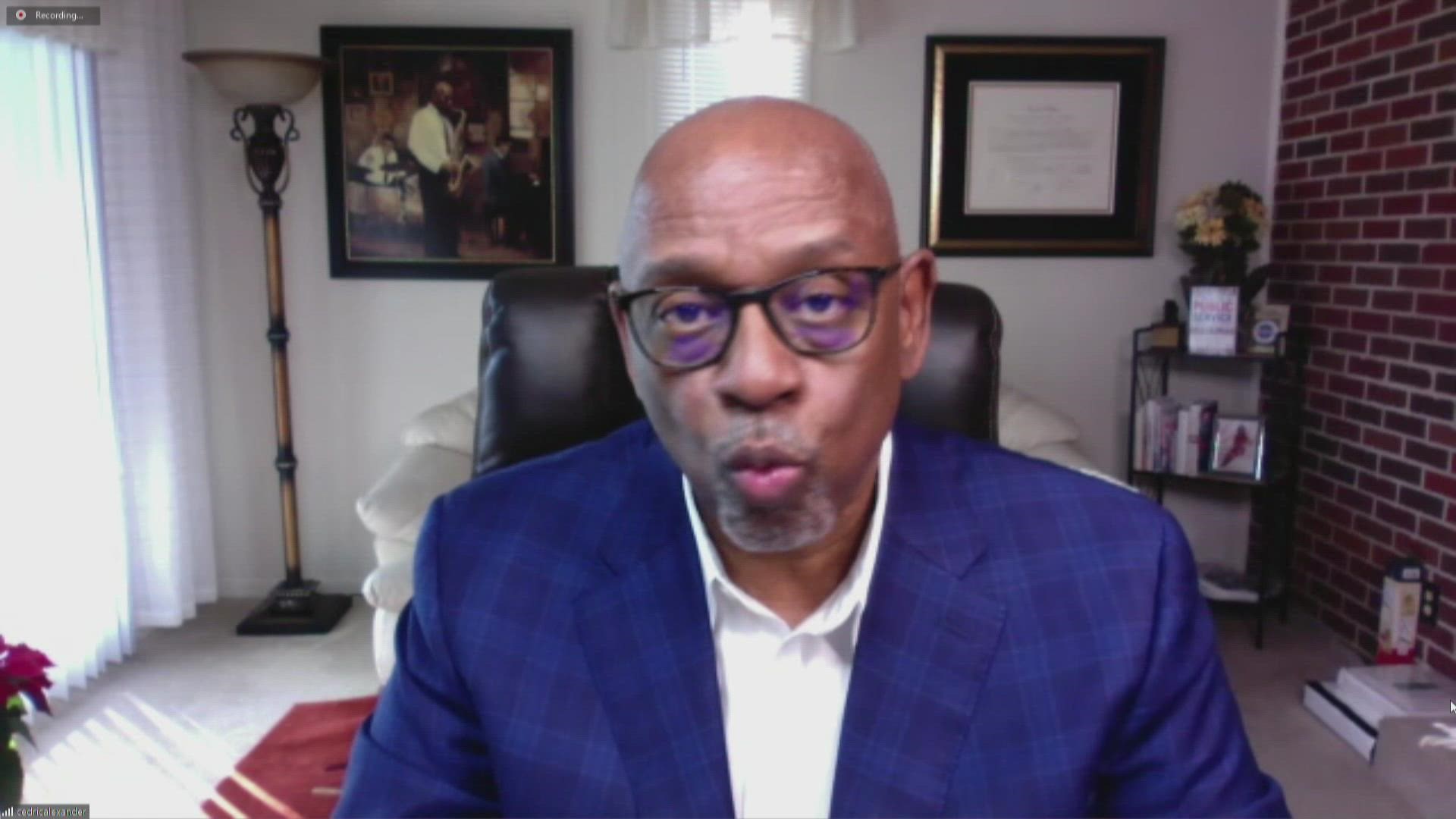ATLANTA — Three law enforcement agents in metro Atlanta have died within the last month, all while responding to the same kind of call: Domestic violence.
The latest was Clayton County Field Training Officer Henry Laxson, who was shot and killed in an incident on Tuesday night.
Before him, in early November, Henry County Officer Paramhans Desai and Jackson County Deputy Lena Marshall were both killed within days of each other responding to domestic violence calls.
Dr. Cedrick Alexander, a national public safety expert and former DeKalb County public safety director, told 11Alive a domestic violence call is "one of the most dangerous calls that officers will have to respond to."
"Anytime you respond to a domestic violence call, as you can well imagine, domestic violence is going to involve a great deal of emotion... often times around anger," Dr. Alexander said. "And by the time officers get to the scene and attempt to try to de-escalate a situation it may already be well beyond anything that can be done."
There are a number of complicating factors in a domestic violence situation. They're often very fluid, and the on-the-ground realities can change between when officers receive a call and when they arrive on scene. They're more likely to be at a residence, which creates uncertainty if it's happening behind closed doors and can limit the space officers have to work with if they need to enter into a home.
"These type of events can escalate very easily, and you also have to remember when officers are given an address to respond to a scene, they're given initial information but that scene is continuing to change as officers are en route," he said. "People could be inside a house, officers come to the door taking all precautions that they can, but we don’t know what's on the other side of that door."
Family members or other friends are also going to be involved with the suspect, and may or may not want to see them arrested. That can result in varying levels of cooperation.
Alexander said the most important thing for people involved in a domestic violence call is to be cooperative and try and keep things calm.
"Here’s what I would say to the public: If you call officers to the scene where there's domestic violence - if you're a member of that household or that environment, try to work as closely and calmly as you can with officers so that this is brought to a resolve."
The dangers of domestic violence response appear to have increased during the pandemic in particular, with more people who have been at home longer and more widespread economic precarity.
One study published in the September issue of the journal Violence and Gender looked at domestic violence before and during the initial stages of the pandemic last year in Atlanta.
Combing through Atlanta Police Department data, the study found that after Gov. Brian Kemp issued stay-at-home orders, domestic violence incidents increased by 11% while other major crimes decreased by 20%.
11Alive also reported in May 2020 that APD had seen a more than 40% initial increase in domestic violence crimes. Such an increase has been observed in other parts of the country, as well. One study found an increase of anywhere from 10% (New York City) to more than 20% (Portland, Ore.) in certain cities around the country.
Alexander said you can't pin all of the domestic violence problems on COVID, but that it's a major factor.
He said the way it can be tackled is through police and community cooperation.
"The most important thing is awareness of it - it is not just a police problem, it's a community problem, and police and the community are gonna have to work together," Alexander said.
An online fundraiser has been set up for Clayton County Field Training Officer Henry Laxson. The fundraiser may be found here.

